Publications
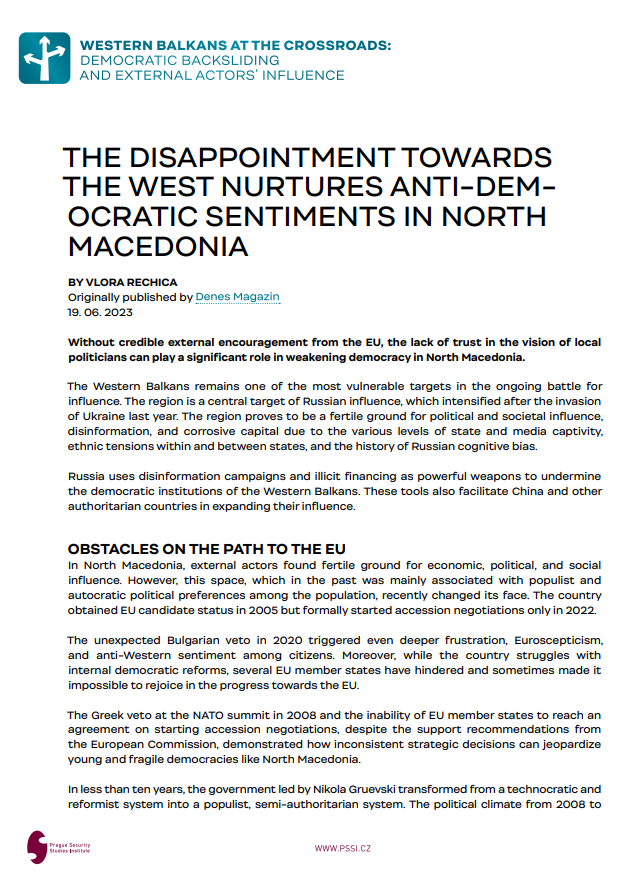
Information Resilience Program // Vlora Rechica / 23 Jun 2023
The disappointment towards the West nurtures anti-democratic sentiments in North Macedonia
Without credible external encouragement from the EU, the lack of trust in the vision of local politicians can play a significant role in weakening democracy in North Macedonia. The Western Balkans remains one of the most vulnerable targets in the ongoing battle for influence. The region is a central target of Russian influence, which intensified after the invasion of Ukraine last year. The region proves to be a fertile ground for political and societal influence, disinformation, and corrosive capital due to the various levels of state and media captivity, ethnic tensions within and between states, and the history of Russian cognitive bias.
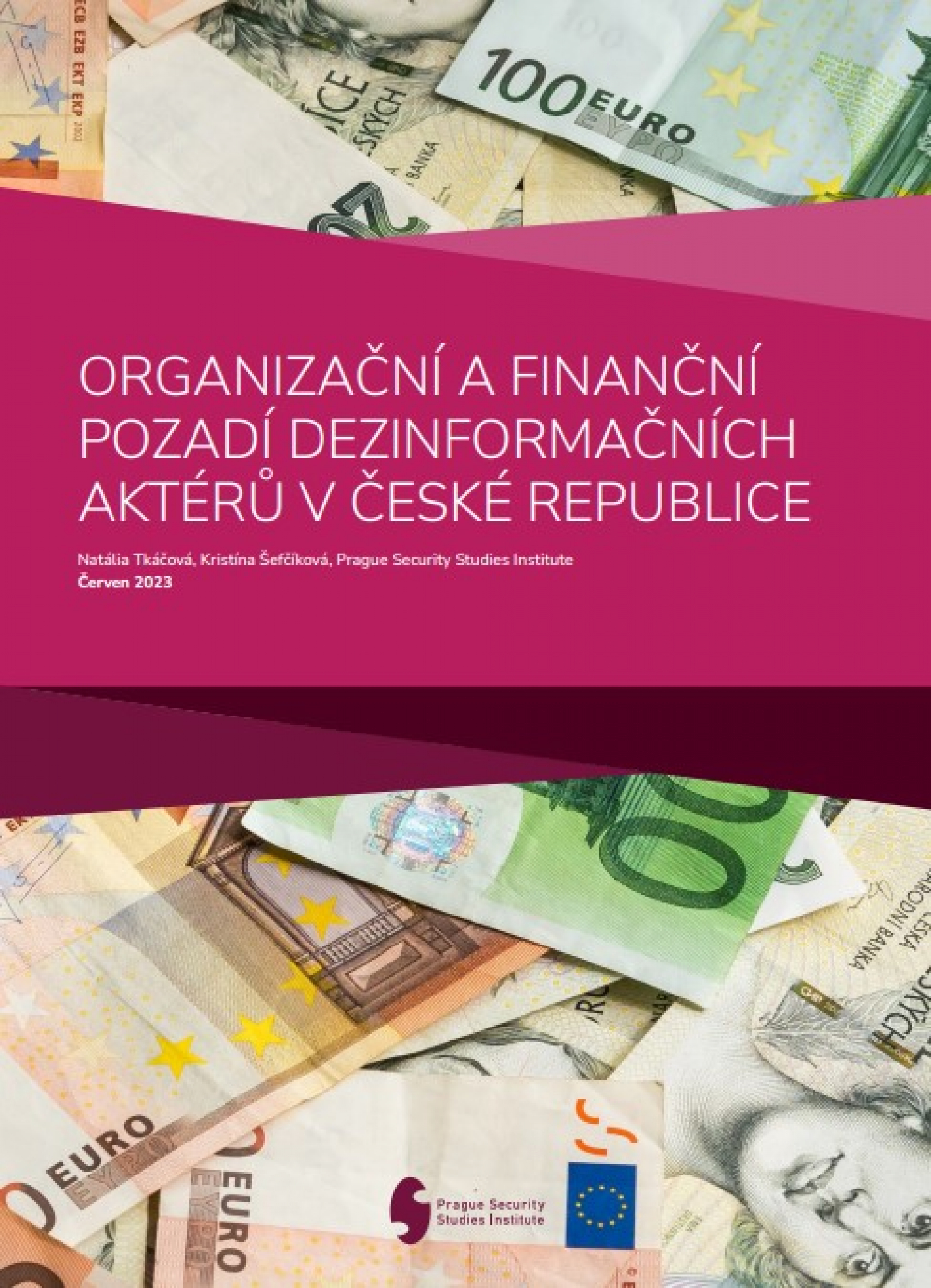
Information Resilience Program // Natália Tkáčová, Kristína Šefčíková, Prague Security Studies Institute / 20 Jun 2023
Organizational and Financial Background of Disinformation Actors in the Czech Republic
The Czech Republic’s disinformation scene consisted mainly of alternative online outlets spreading disinformation and conspiracies in the past, roughly until the Covid-19 pandemic. They were mostly non-transparent, by default hiding and obfuscating their ownership structure, contributors, and financing. However, this scene has diversified significantly in recent years due to the pandemic, the war in Ukraine and domestic political and economic developments. It now also consists of civil movements of "freedom fighters," influencers, celebrities, far-right/left politicians and individuals who began to engage in the disinformation discourse for their personal interest, for example to cover their debts or enter politics.
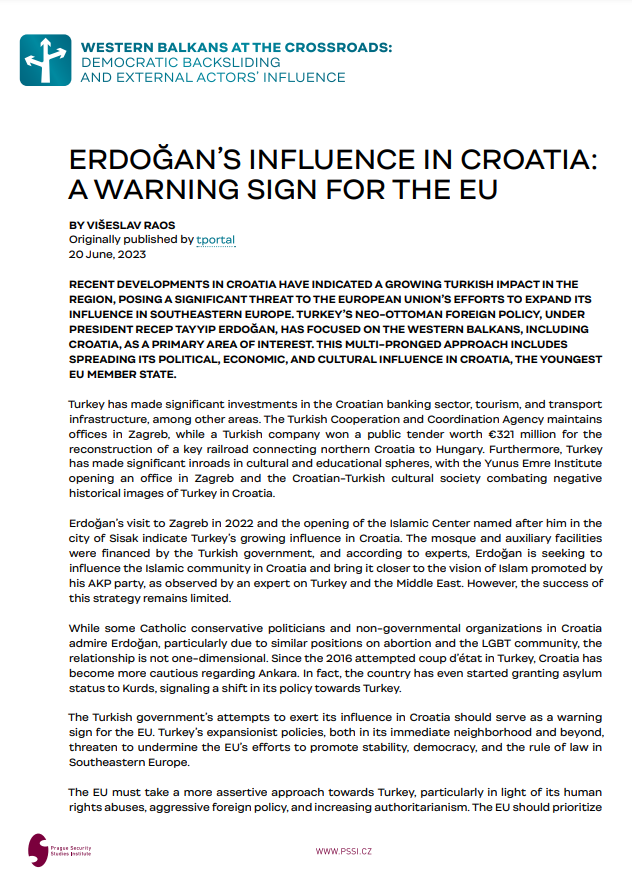
Information Resilience Program // Višeslav Raos / 20 Jun 2023
Erdoğan's influence in Croatia: A warning sign for the EU
Recent developments in Croatia have indicated a growing Turkish impact in the region, posing a significant threat to the European Union’s efforts to expand its influence in southeastern Europe. Turkey’s neo-ottoman foreign policy, under president recep Tayyip Erdoğan, has focused on the Western Balkans, including Croatia, as a primary area of interest. This multi-pronged approach includes spreading its political, economic, and cultural influence in Croatia, the youngest EU member state.
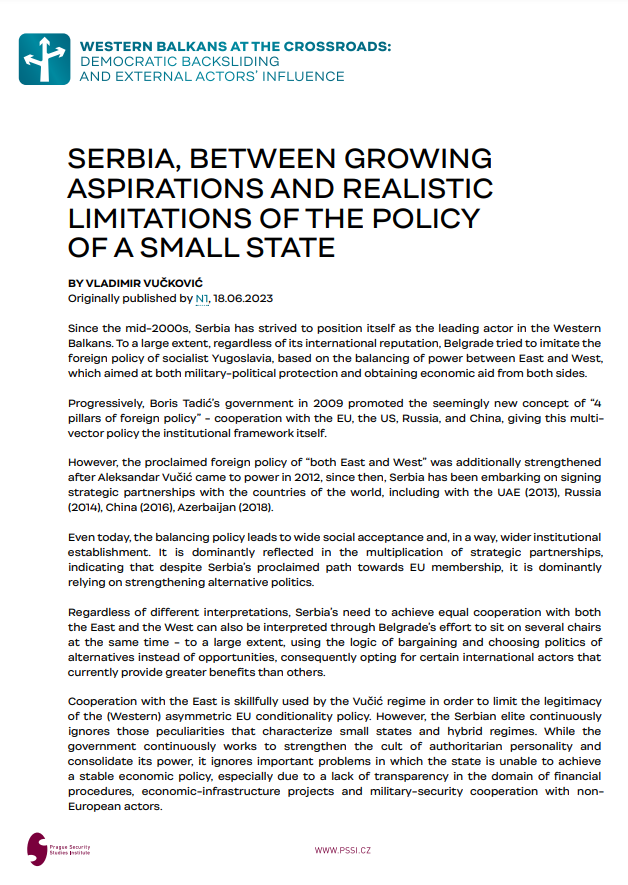
Information Resilience Program // Vladimir Vučković / 20 Jun 2023
Serbia, between growing aspirations and realistic limitations of the policy of a small state
Since the mid-2000s, Serbia has strived to position itself as the leading actor in the Western Balkans. To a large extent, regardless of its international reputation, Belgrade tried to imitate the foreign policy of socialist Yugoslavia, based on the balancing of power between East and West, which aimed at both military-political protection and obtaining economic aid from both sides.
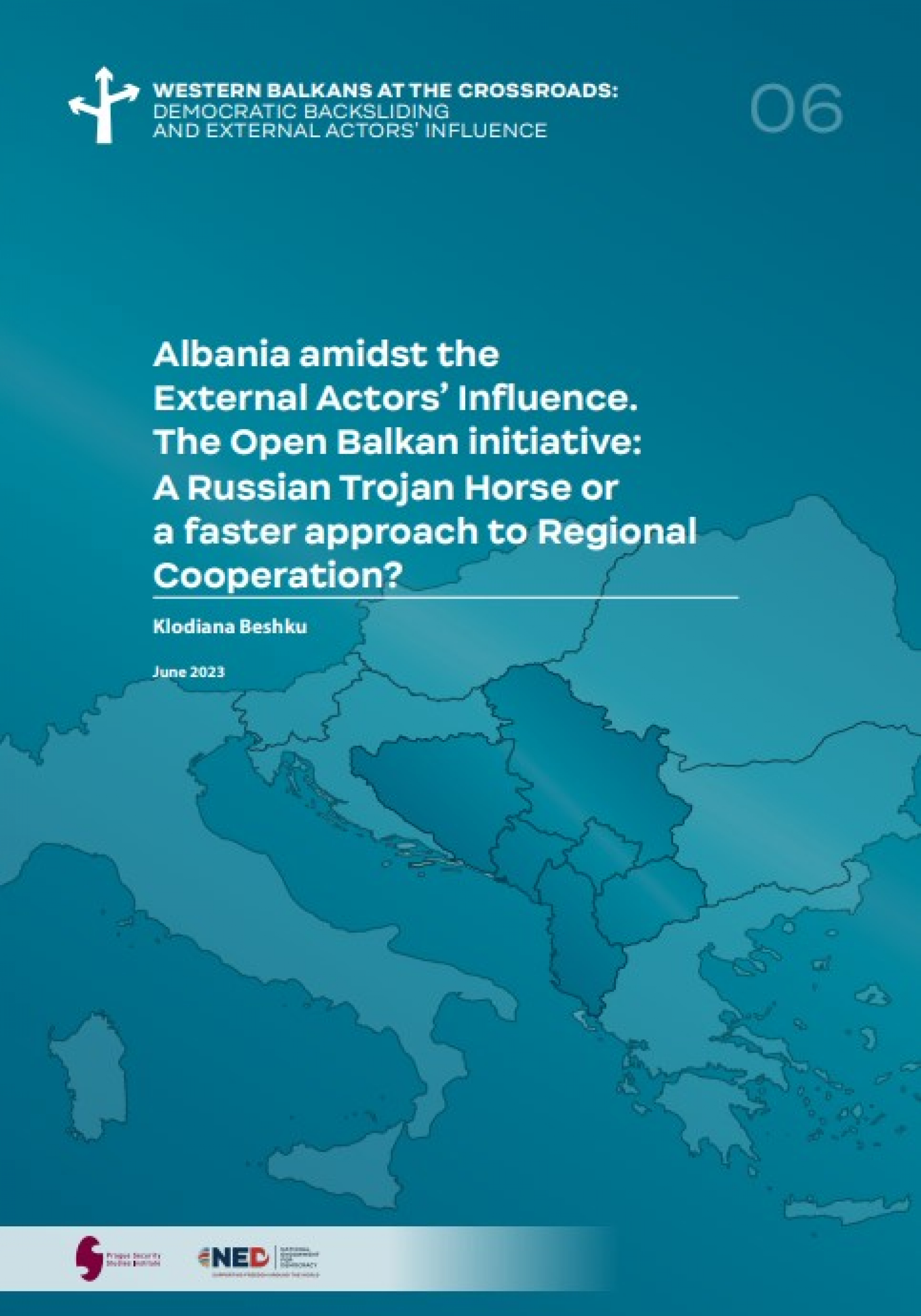
Information Resilience Program // Klodiana Beshku / 19 Jun 2023
Albania amidst the External Actors’ Influence. The Open Balkan initiative: A Russian Trojan Horse or a faster approach to Regional Cooperation?
Albania has found itself in the middle of the political “chessboard” created by the most influential external actors after the EU and the USA, namely, Russia, China, Türkiye, and the Arab states of the Persian Gulf. The study explores Albania’s multifaceted attitudes within the context of the dynamics in the Western Balkans and sheds light on how the Open Balkan (OB) initiative has shaped relations among the Western Balkan countries.
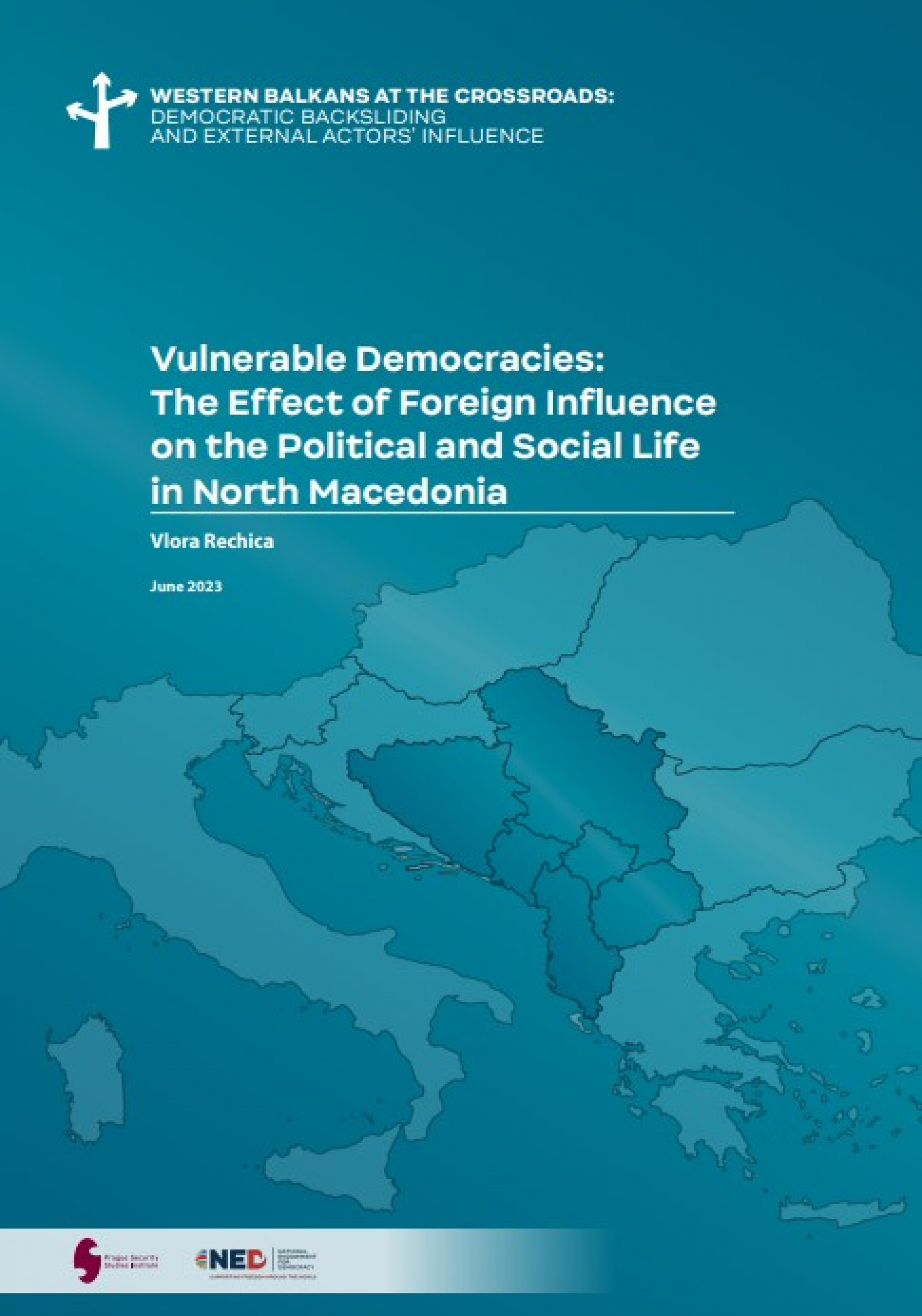
Information Resilience Program // Vlora Rechica / 6 Jun 2023
Vulnerable Democracies: The Effect of Foreign Influence on the Political and Social Life in North Macedonia
This study analyses the effects of foreign influence on political and social life in North Macedonia, focusing on the impact of the prolonged EU integration process, as opposed to the influence excreted by non-western actors, particularly Russia, China, Türkiye, and the Arab states of the Persian Gulf.
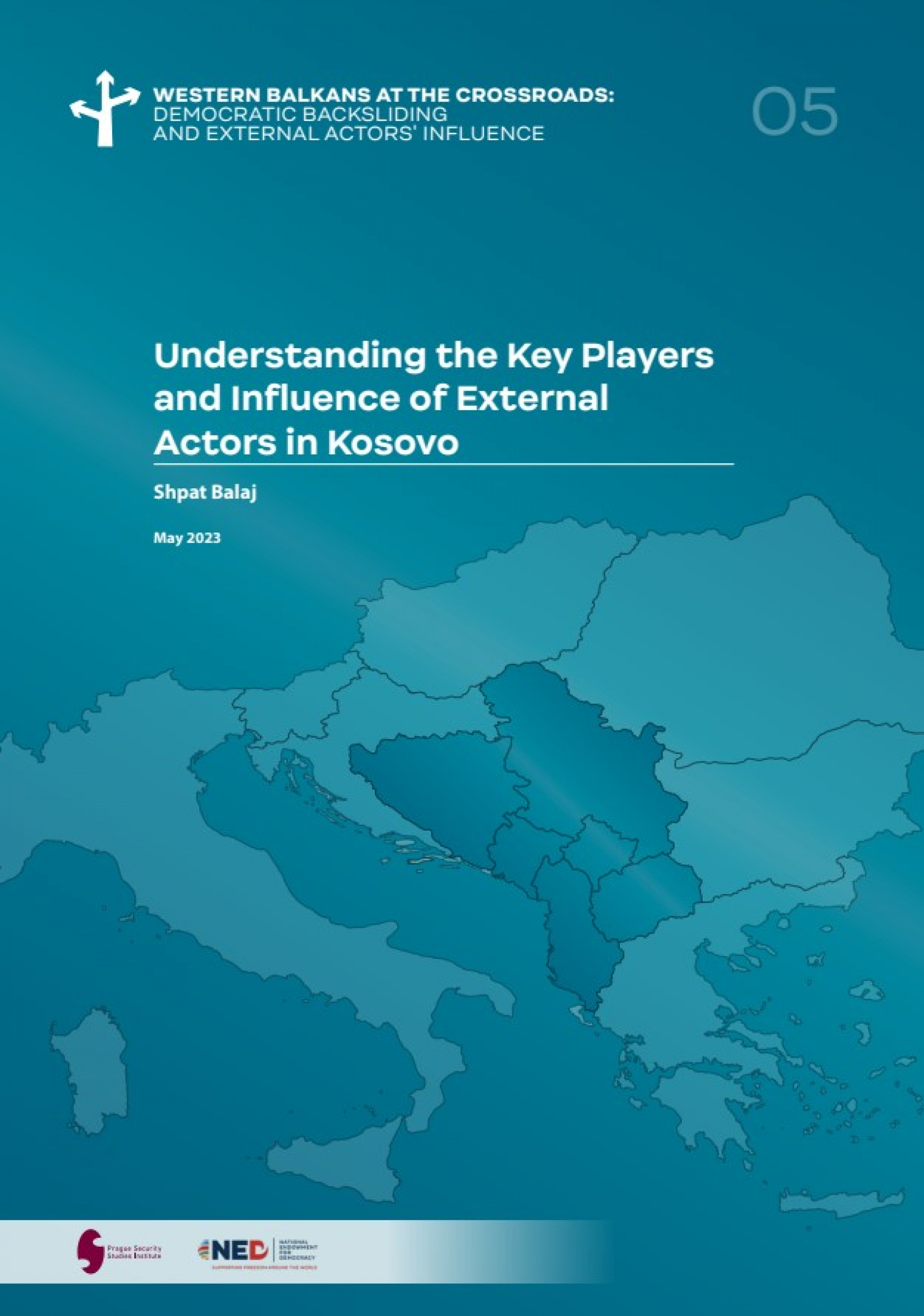
Information Resilience Program // Shpat Balaj / 2 Jun 2023
Understanding the Key Players and Influence of External Actors in Kosovo
This study analyses the external influence in Kosovo and how these influences manifest in the political, economic, and social realms. The report contends that the historical context in which Kosovo emerged as a state has determined how external influence is perceived in the country.
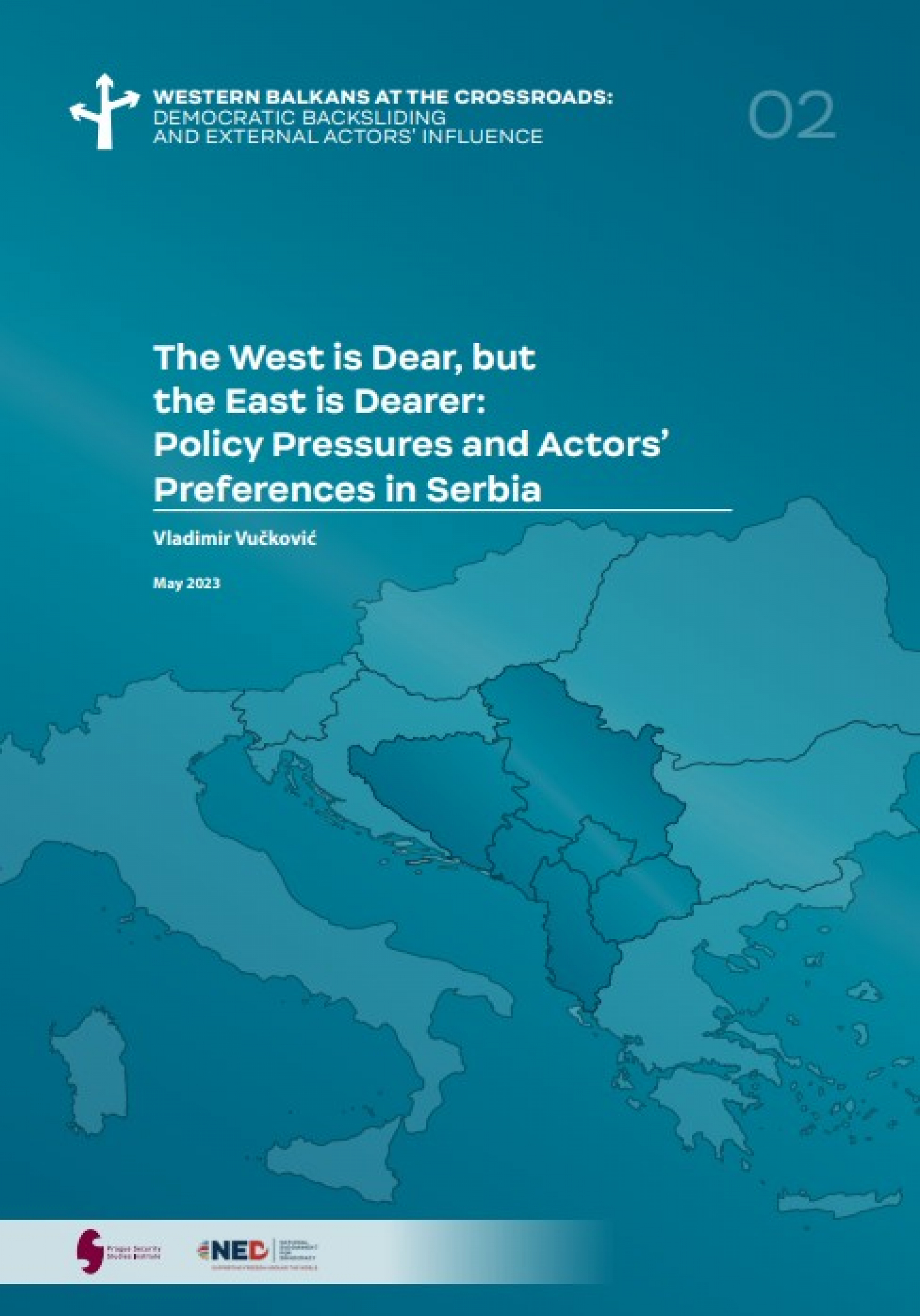
Information Resilience Program // Vladimir Vučković / 30 May 2023
The West is Dear, but the East is Dearer: Policy Pressures and Actors’ Preferences in Serbia
This policy paper investigates the influence of Russia, China, Turkey, and the Arab states of the Persian Gulf on the process of (in)stability, including democratization, in Serbia from 2008 to 2022.
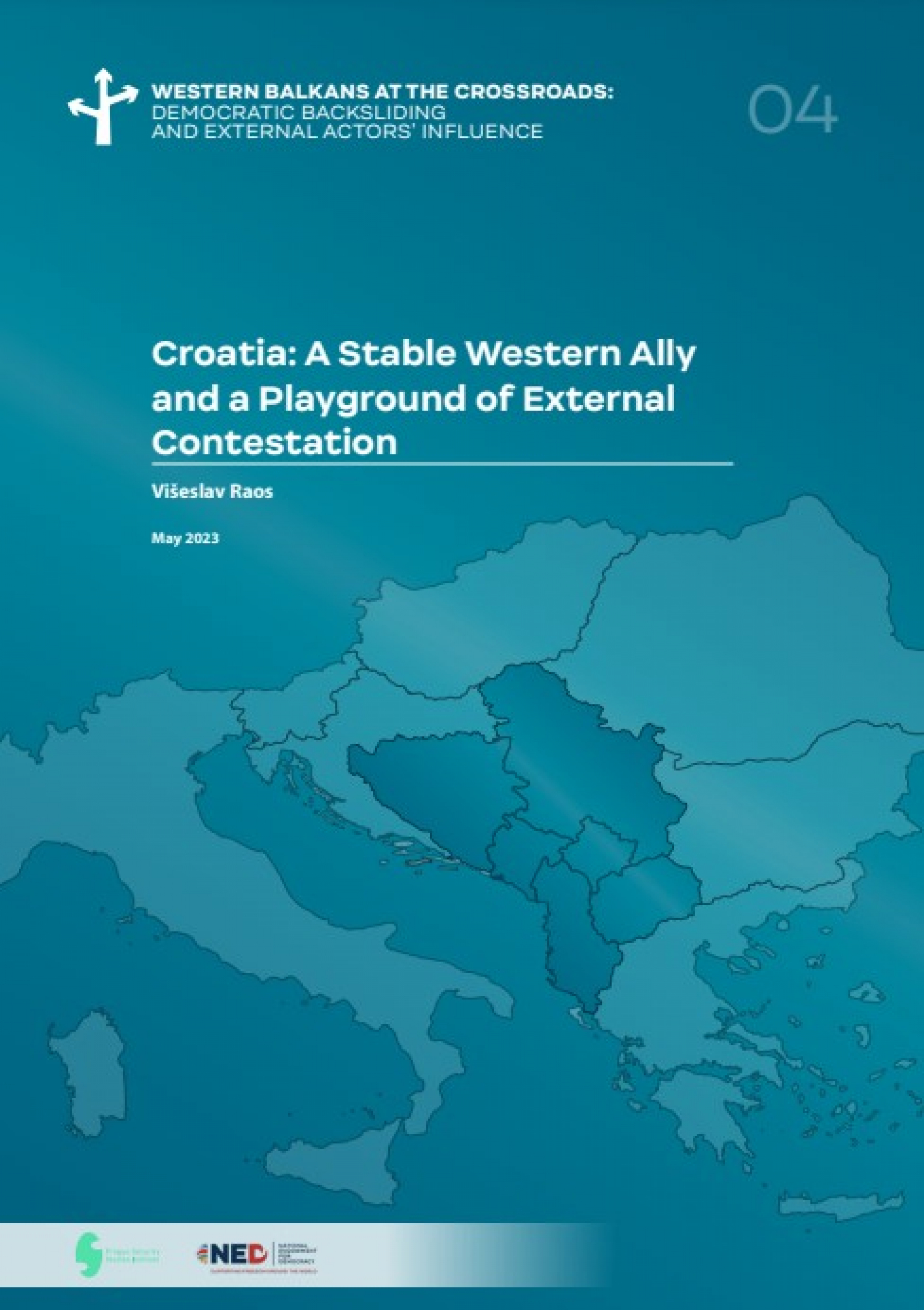
Information Resilience Program // Višeslav Raos / 24 May 2023
Croatia: A Stable Western Ally and a Playground of External Contestation
Croatia is a committed member of the EU and NATO and a stable ally of the United States in the region. Yet, it has been experiencing illiberal tendencies since becoming an EU member, marked by widespread corruption and a weakening of independent institutions which should control the executive.
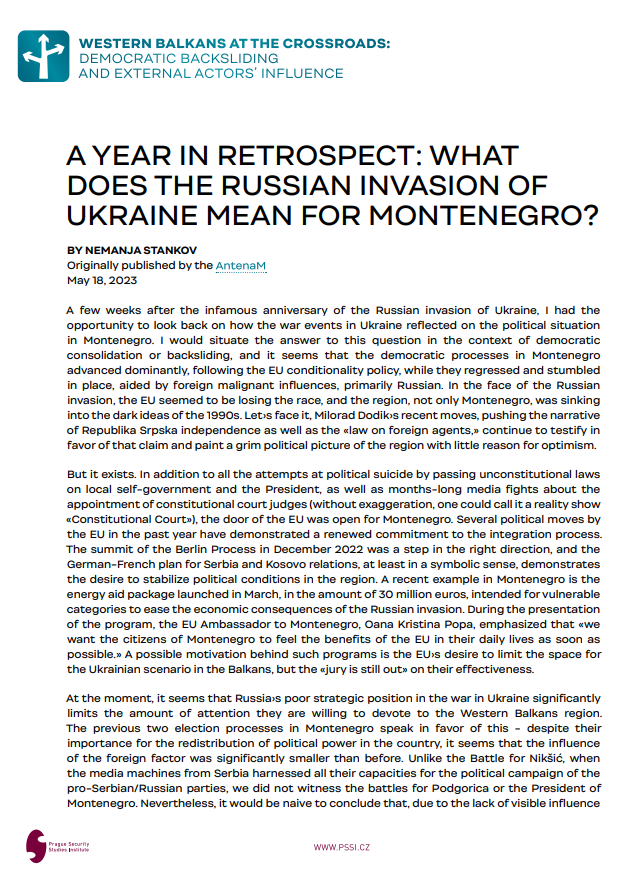
Information Resilience Program // Nemanja Stankov / 19 May 2023
A Year in Retrospect: What does the Russian invasion of Ukraine mean for Montenegro?
As we reflect on the aftermath of the Russian invasion of Ukraine, its effects on Montenegro's political landscape are evident. Democratic backsliding seems to have advanced even with the EU’s continuous support of Montenegro's integration process. As Montenegro treads its path, balancing influences from East and West, it faces critical decisions for its future.